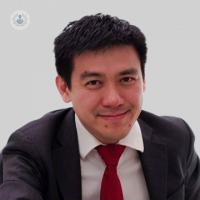The reality of traumatic brain injuries
Autore:Traumatic brain injuries are when a head injury causes damage to the brain. Brain injuries can be very serious, and must be dealt with by a specialist. Dr James Teo, a leading neurologist, explains how traumatic brain injuries are dealt with and treated.
What are the most common causes of traumatic brain injury?
The most common causes of traumatic brain injuries are road traffic accidents and sports-related injuries.
How is a traumatic brain injury diagnosed?
The presence of any loss of consciousness and amnesia is suggestive of a traumatic brain injury, and requires a brain scan. In an emergency situation, CT-head scans are used to make a diagnosis, but for more subtle and delayed damage, MRI-scans can provide better diagnoses.
How are mild traumatic brain injuries treated?
Common symptoms experienced with post-concussion syndrome, a mild form of brain injury, include:
- Memory usually suffers for several weeks.
- Poor attention span
- Dizziness
- Disrupted sleep cycle
- Migraine
To recovery from a mild brain injury, often time and extended bed rest are needed. Certain medications can help to some degree, but only in suppressing the symptoms to allow recovery to occur. The length of time needed to recover from a concussion is often under-estimated, and recovery can often take from weeks to several months.
How are severe traumatic brain injuries treated?
For more severe traumatic brain injuries, emergency surgery is sometimes necessary with supportive intensive care like ventilators, prolonged anaesthesia, body cooling being needed.
Often there will be many weeks or even months of unconsciousness or amnesia and controlled environments are needed to contain the patient. After the acute period, extended multidisciplinary neurorehabilitation is necessary comprising of specialist medical, nursing, neuropsychologists, neuropsychiatrists, physiotherapists, occupational therapists, speech therapists.
Brain injuries also often do not occur in isolation, and there is often body trauma, so multiple specialists and different surgeons are needed for different parts of the body. ,
In summary, sever brain injuries are a complex medical problem that only experienced specialists working in large units with multiple disciplines can handle adequately. The recovery and rehabilitation can take months to years.
What advancements have been made in the management and care of traumatic brain injuries?
The development of assistive communication technology allows communication with patients with impaired abilities to speak. More advanced technologies include special functional brain scans and brain recordings which can detect awareness and consciousness in an apparently comatose patient. These technologies allow us to provide more accurate assessments of patients who are unable to tell us how they feel or their wishes.
If you or a loved one needs to see a neurologist, make an appointment now.



